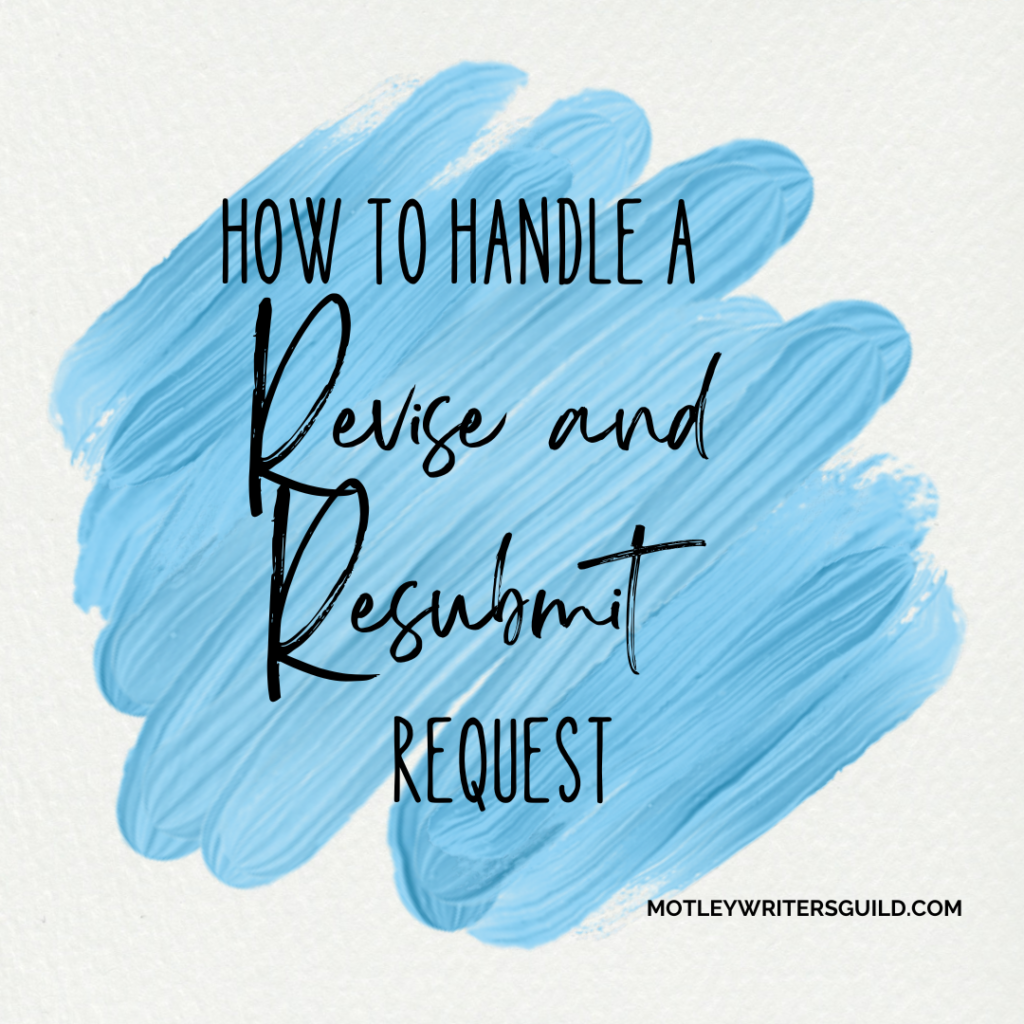
If you’ve been braving the query trenches, chances are you have heard about the term “R&R” before. No, that does not stand for “Rest and Relaxation” from the brutal trenches. In fact, it’s almost the complete opposite. R&R in the traditional publishing world stands for “Revise and Resubmit.” It is what it sounds like: an agent thinks your manuscript has potential but it needs a major revision, and if you can pull that off and resubmit, then you will MAYBE get an offer of representation.
It’s absolutely crucial to note that “MAYBE” above – going ahead with an R and R, and resubmitting to the agent in no way guarantees that you will get an offer of rep. In fact, as someone who has done R and R twice for two different agents and received rejections from both, I can attest to this from personal (and painful) experience. As heart-breaking as it is, you may have come across the odd poll on Twitter or other writing blogs (albeit with limited data collection) that show that the vast majority of R and R’s still end up in a rejection. Yeah. It sucks.
Receiving an R and R can feel a lot like Taylor Swift’s lyric from the song “22” – it’s both miserable and magical. Magical because FINALLY someone believes your work may have the potential to be an actual, publishable book some day! Miserable because it’s still a long-winded rejection 🙁
The topic of this blog post will address how to handle this “miserable and magical” experience in 7 steps as follows.
STEP 1:
Do Nothing! It sounds odd, but I’d literally advise you to do nothing at first. Simply read the edit letter or the email with the R and R feedback, and just sit on it. Do not make a decision right away to revise.
STEP 2:
Read the letter again on a different day, preferably a few days later. This will help you digest the feedback and will remove some of emotions and the immediate sting of rejection from the picture.
STEP 3:
This is perhaps the most critical step. Process the feedback with as much objectivity as possible. Sit down and really mull over it. Can you envision the book differently? Do you resonate with the opinion of the agent? Have you considered the fact that reputable literary agents really are experts in the industry and probably will have very insightful feedback, but, at the same time, they can never predict reader and critical response to the book? After all, sometimes, you just need to stick to your guns and your idea may be the right one all long. It is critical to balance the agent’s expert opinion with your own gut feeling. Your heart must be in it before you jump into revisions because believe me when I say, this is just the beginning. You will likely have to go through several drafts with the agent and then, after the sale of the book, rinse and repeat with your editor.
You also need to clarify with the agent that if you do R and R, will they ask for an exclusive resubmission or not? You should not automatically assume exclusivity, though this is one of those very few times I would grant exclusivity to the agent if they ask for it. Since they put in so much effort to help you revise, it’s only fair that they get the first dibs on the revised manuscript. Still, SPECIFY the duration of exclusivity! Never submit an exclusive indefinitely! Always specify the expiry date for exclusivity. In my case, I told the agent they can have the revised ms exclusively for 6 weeks only.
(Furthermore, you should also notify other agents who are still considering your query if you decide to revise.)
STEP 4:
Assuming you have made the decision to go ahead with the revision (and you have accepted the fact that this still may not lead to an offer of rep), make a game plan for the revision.
In particular, you need to think about fixes to the problems the agent has identified in the ms. Most agents will not spoon-feed you the solutions – that’s your job. They may mention a few loose ideas but they’re not saying this is the only way to fix things. What they’re really looking for is to ignite your creativity and mind-trick you into coming up with more brilliant and organic solutions to the problems that, hopefully, the agent would be pleasantly surprised by.
In particular, the big and broad categories to work on here will likely include:
-Character arcs (especially for your MC)
-Pacing (an exceedingly common issue in most debut author first drafts)
-Plot
-Tension
-World-building
Note how I haven’t included voice here because that’s rarely something an agent would invest time in if they thought they didn’t connect with your voice or writing style. They would’ve rejected the query in the first place.
STEP 5:
Do the actual revision. Easier said than done! Self-editing and revising is a non-negotiable author skill in my opinion and I would be so bold as to say that without this skill, you likely won’t get through the hoops of traditional publishing.
The most important thing to note here is DO NOT RUSH THE REVISION! There is nothing that looks worse on you than submitting a “cosmetic” Revise and Resubmit. i.e. where you have superficially fixed things and come up with “band-aid” solutions. That’s going to scream “amateur” from page one.
Opinions on the timeline for completing the revisions vary, but I would say definitely do NOT submit it sooner than 6 weeks after your R and R email, preferably 8 weeks. I think the more reasonable timeline would be 2 to 3 months.
I should also note that waiting too long here may also not be the best idea as you want to demonstrate to the agent that you are able to turn around a manuscript on a decent timeline. I’d say waiting more than 8 to 9 months is not a good idea. You don’t want an agent to loose their enthusiasm or for the market to turn over its head and suddenly, your book is no longer in favour, or worse, someone else beats you to a similar book idea.
STEP 6:
Do not forget those awesome critique partners and beta readers! Run your revised manuscript by them and collect feedback. Make changes as necessary.
STEP 7:
Hit “send” and resubmit to the agent while keeping your fingers crossed!
On a final note, if you have an R and R, do yourself a favour and pat yourself on the back because you are definitely on the right track and your agent wouldn’t be bothering sending you so many notes if they didn’t believe your story has massive, untapped potential!
The Motley Guild wishes you the very best of luck as you move forward with your R and R!
If you enjoyed this post, please subscribe to the Motley Writers Guild newsletter for notification of new blog posts and book news.





I hope you find this article about R and R (R&R), also known as Revise and Resubmit helpful!